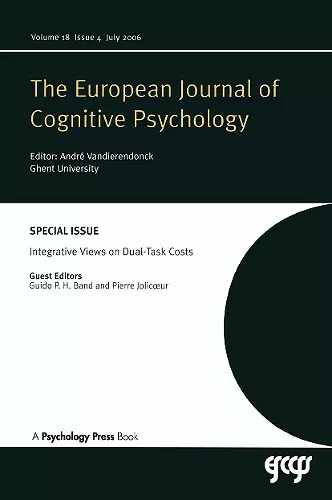Integrative Views on Dual-task Costs
A Special Issue of the European Journal of Cognitive Psychology
Pierre Jolicoeur editor Guido PH Band editor
Format:Paperback
Publisher:Taylor & Francis Ltd
Published:13th Jul '06
Currently unavailable, and unfortunately no date known when it will be back

It is well known that the capacity for both simultaneous and rapid sequential information processing is limited. In the past two decades, at least four different approaches for the investigation and explanation of dual-task interference have developed. Surprisingly, these developments have taken place largely independent of each other. For example, working memory theories explain the inability to memorize combinations of data with the existence of modality-specific memory storage. Task switching models attribute switch costs to a combination of task reconfiguration costs and interference between competing task sets. Research with the refractory period paradigm suggests that a second of two responses is slowed because demanding processes such as response decisions defy parallel processing. Finally, attentional blink research shows that limited awareness of the second of two masked visual targets is caused by storage difficulties during the identification of the first target.
The rare attempts at finding bridges between dual-task models attribute the costs to a mixture of shared and unique mechanisms. The ten papers gathered in this issue address questions such as: What is the relationship between working memory storage, retrieval, and cognitive operations? Can control processes account for the attentional blink and the refractory period effect? Are capacity limitations modality specific, and are they triggered by bottom-up or top-down processes? The authors argue that goal adjustments and episodic encoding of events qualify as shared mechanisms underlying dual-task limitations across multiple paradigms.
ISBN: 9781841698083
Dimensions: unknown
Weight: 294g
192 pages